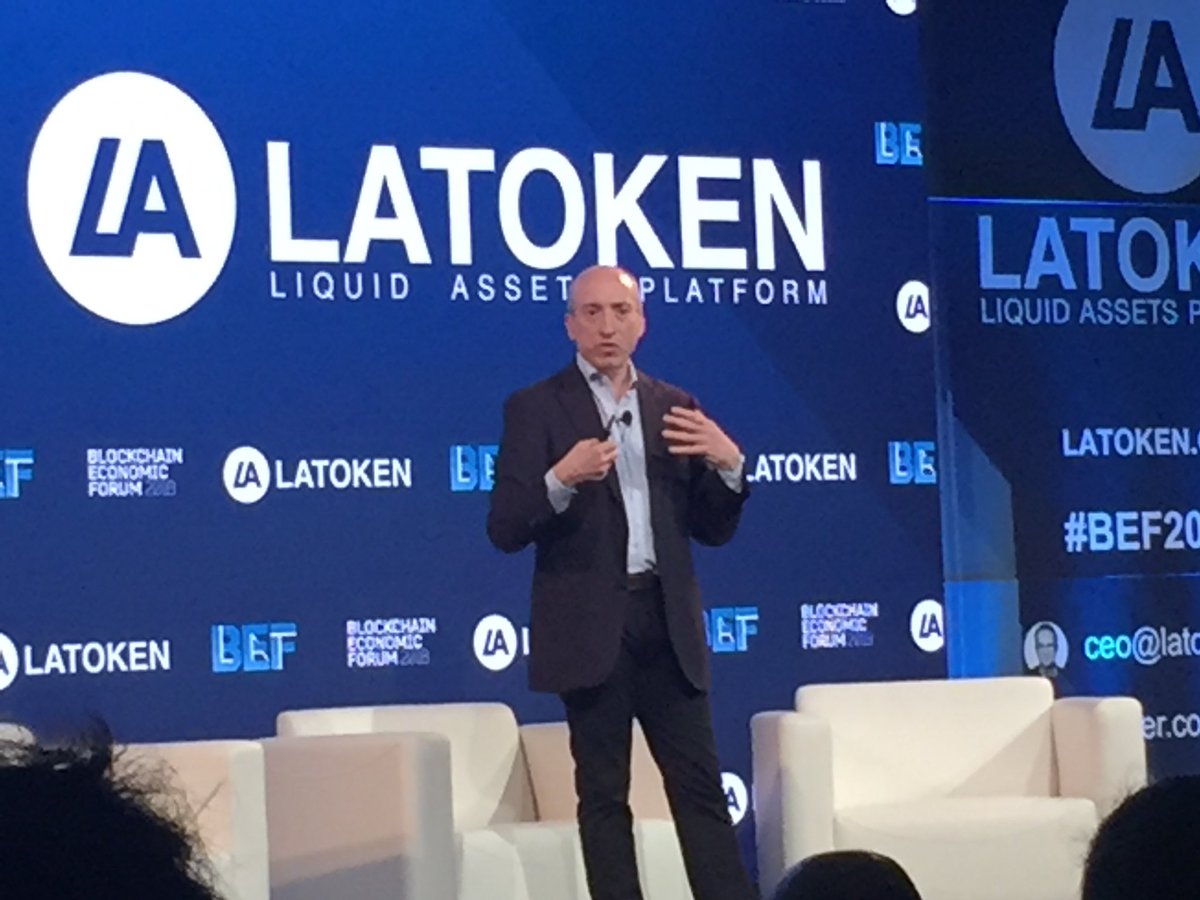0/ Thoughts on crypto regulation from Gary Gensler, former Chairman of CFTC and central figure in regulating swaps in ‘08.
#BEF2018
#BEF2018

1/ On derivatives:
Derivatives for relatively illiquid cryptoassets are a bad idea.
Derivatives for relatively illiquid cryptoassets are a bad idea.
2/ On accreditation:
It is “silly” but will likely stay as a way to tier investor protection.
It is “silly” but will likely stay as a way to tier investor protection.
3/ On decentralized exchanges:
As more AML/KYC and anti-front running laws get set in place, and as centralized exchanges increase rent, dex’s will start to catch volume.
Regulators will likely then target on-ramps.
As more AML/KYC and anti-front running laws get set in place, and as centralized exchanges increase rent, dex’s will start to catch volume.
Regulators will likely then target on-ramps.
4/ On tokenizing liquid assets:
If asset is liquid (e.g. stocks and bonds), tokenization will likely be unnecessary except for global tax arbitrage.
For Gold, silver - probably will happen due to capital markets interest.
If asset is liquid (e.g. stocks and bonds), tokenization will likely be unnecessary except for global tax arbitrage.
For Gold, silver - probably will happen due to capital markets interest.
5/ On tokenizing illiquid assets:
For illiquid assets, tokenization may bring unknown risks (e.g. as seen in the securitization of commercial loans and mortgage backed securities in 08)
(cc @APompliano, thought you’d be interested!)
For illiquid assets, tokenization may bring unknown risks (e.g. as seen in the securitization of commercial loans and mortgage backed securities in 08)
(cc @APompliano, thought you’d be interested!)
6/ On banks and hedge funds:
If crypto stabilizes in public policy (projected timeline 2-3 years) and the asset class scales significantly, hedge funds and investment banks will come in en masse, but might be slower due to reputational and compliance risks.
If crypto stabilizes in public policy (projected timeline 2-3 years) and the asset class scales significantly, hedge funds and investment banks will come in en masse, but might be slower due to reputational and compliance risks.
7/ On securities law:
Most ICOs are probably security offerings but can become decentralized over time.
Most ICOs are probably security offerings but can become decentralized over time.
• • •
Missing some Tweet in this thread? You can try to
force a refresh




